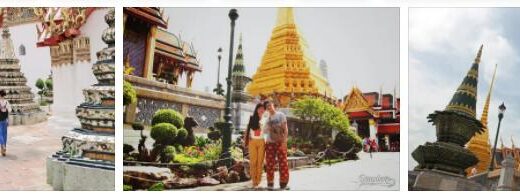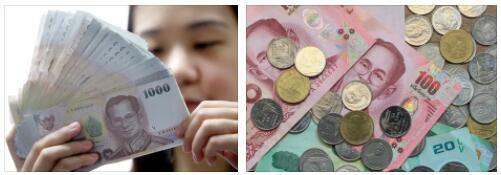Thailand Travel Warning
Country-specific safety information
The King of Thailand, Bhumibol Adulyadej, passed away on October 13, 2016.
The ordered period of mourning lasts one year. During this time, restrictions on social and public life cannot be ruled out. Travelers should respect the feelings and expressions of sadness of the Thai people; appropriate clothing should be worn in public.
In August 2016, there were bombings and arson attacks in Hua Hin, Phuket, Krabi, Trang and Surat Thani as well as other places and provinces in southern Thailand. There were dead and injured. Travelers to Thailand are further recommended to be extra vigilant and to obey the orders of the local security forces and authorities.
Basically, after the military coup in May 2014, the security situation in Thailand has stabilized. Public life is largely normal. Freedom of expression and assembly are, however, still severely restricted. It is therefore recommended to avoid demonstrations and crowds as violent clashes between demonstrators and security forces cannot be ruled out.
On the evening of August 17, 2015, a bomb attack occurred in Bangkok at the Rajaprasong intersection, which is also popular with tourists, near the so-called Erawan Shrine, the background of which has still not been fully clarified. There were numerous fatalities and injuries. Further attacks, including in other holiday areas, cannot be ruled out. Travelers are therefore advised to be particularly careful and also to pay close attention to current media coverage.
We strongly advise against traveling to and through the provinces in southern Thailand on the border with Malaysia (Narathiwat, Yala and Pattani and parts of Songkhla) that are subject to emergency law. There is a continuing risk of terrorist attacks, including on targets frequented by foreigners.
We strongly advise against traveling to the border region to Cambodia, especially to Preah Vihear and the other temple complexes in this area. The entire area is still a restricted military area. The judgment of the International Court of Justice of November 11, 2013 on the area surrounding the temple has been accepted by both sides, but has not yet been implemented. For the situation on the Cambodian side, please note the external link, opens in a new windowTravel and safety information for Cambodia.
Terrorism
As in many other countries, a general risk of terrorist attacks can never be ruled out in Thailand.
There is also a risk of terrorist attacks in the predominantly Muslim southern border provinces with Malaysia (Narathiwat, Yala and Pattani as well as large parts of Songhkla). Since the beginning of 2004, radical Muslim groups have carried out attacks against state institutions and private individuals there almost every day, often with serious consequences. Bomb attacks in public spaces often result in deaths and injuries. A state of emergency has been imposed on the unrest area since 2005.
Crime
As a country located in Asia according to ezinereligion, Thailand is recording increasing crime (including theft, rape, robbery, sometimes resulting in death). This applies in particular to the tourist strongholds of Phuket, Koh Samui and Pattaya. Several fatal incidents have already occurred at the monthly “Full Moon Party” on the island (Koh) Pha Ngan north of Koh Samui. Women and girls have been repeatedly raped by participants who were drugged or alcoholic.
In many tourist strongholds, gangs working with corrupt police officers is not uncommon. The tourists are assumed to have returned rented items (in particular jet skis or scooters) damaged or committed petty crimes (theft of imitation watches, etc.) in order to extort money. The police station on Patong Beach has become particularly noticeable. In such cases, it is strongly advised to contact the embassy immediately by telephone (+66 2 2879000 during office hours and +66 81 8456224 on-call duty).
Tourists should generally only get into taxis or tuk-tuks whose drivers they have spoken to. The risk of attempted fraud involving taxi and tuk-tuk drivers is high. For example, tourists are deliberately led into various shops and then put under pressure to buy counterfeit or inferior products there. Particular caution is required when traveling with tuk-tuks. The binding price should be negotiated prior to departure. Otherwise, one can expect to be confronted with highly overpriced demands afterwards. There are hardly any taximeters outside of Bangkok. In Phuket, taxis from the eastern part of the island are not allowed to drive to the western part (to the beaches). Tuk-tuks, on the other hand, can move freely all over the island.
In remote areas and in the border areas with Cambodia and Myanmar, attacks by armed gangs can occur. Trekking tours should generally only be well prepared and ideally undertaken in a tour group with an expert guide.
Safety precautions (e.g. in hotels and discos) in Thailand sometimes do not meet European standards. Safety and rescue facilities are often inadequate on ferries and excursion boats; Caution is advised.
Road traffic
Caution is indicated in traffic. In Thailand, the number of fatal road accidents is much higher than in Germany, 70% of the victims are two-wheelers. Helmets are also compulsory in Thailand. If there is a traffic accident, impulsive reactions from those involved (even armed violence) cannot be ruled out. It is advisable to remain calm in such cases and avoid escalations.
Home ownership
Great care is required when purchasing residential property, including time-sharing rights of residence. In many cases, the services are not provided in the contractually guaranteed manner. In addition, contrary to the contractual agreement, it is often no longer possible to sell or exchange the residential rights. Asserting one’s own rights usually fails because the companies disappear from the market after a short time.
Even if the police do not always investigate to the necessary extent in many cases, they or the local tourist police should be informed immediately in any case. The tourist police are exclusively responsible for disputes between tourists and Thais and speak English.



